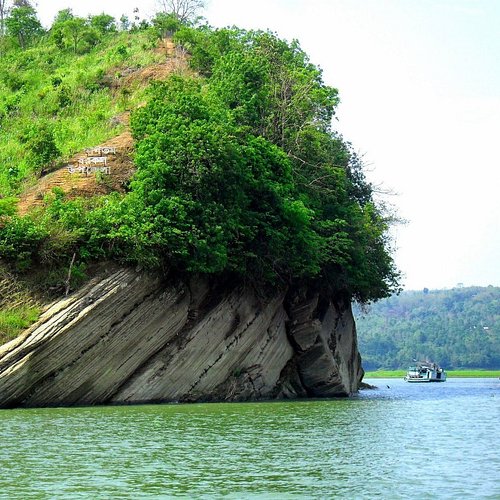Rangamati is a picturesque district in the southeastern part of Bangladesh, located in the Chittagong Hill Tracts. Known for its natural beauty, Rangamati is a popular tourist destination, offering a blend of lush green hills, serene lakes, and a rich cultural heritage. Here's an overview:

Geography
- Rangamati is surrounded by dense forests, rolling hills, and waterfalls, making it a hub for nature lovers.
- It is situated along the Kaptai Lake, the largest artificial lake in Bangladesh, which was created by damming the Karnaphuli River.
Cultural Diversity
- Rangamati is home to various indigenous communities, including the Chakma, Marma, Tripura, and others.
- These communities contribute to the district's cultural richness, with unique traditions, languages, and festivals.
Tourist Attractions
- Kaptai Lake: The crown jewel of Rangamati, perfect for boating and enjoying the serene landscape.
- Shubholong Waterfall: A popular spot accessible by boat, especially during the monsoon season.
- Rajbari (Chakma King's Palace): A historical and cultural site reflecting the legacy of the Chakma community.
- Hanging Bridge: A famous suspension bridge that offers stunning views of the lake and surrounding hills.
- Peda Ting Ting: A small island on Kaptai Lake known for its tranquil ambiance.
- Rangamati Tribal Museum: Showcases the artifacts, traditions, and history of the indigenous communities.
Activities
- Boating and cruising on Kaptai Lake.
- Exploring indigenous markets for handicrafts and traditional textiles.
- Trekking and hiking through forested hills.
- Experiencing tribal festivals and cuisine.
Accessibility
- Rangamati is approximately 77 kilometers from Chittagong city and is accessible by road. The journey offers scenic views of the hilly terrain.
Significance
- The district plays a vital role in preserving the cultural heritage of Bangladesh’s indigenous people.
- It is a peaceful retreat, away from the hustle and bustle of urban life, making it ideal for eco-tourism and cultural exploration.
Would you like to know more about a specific aspect of Rangamati?
Post a Comment